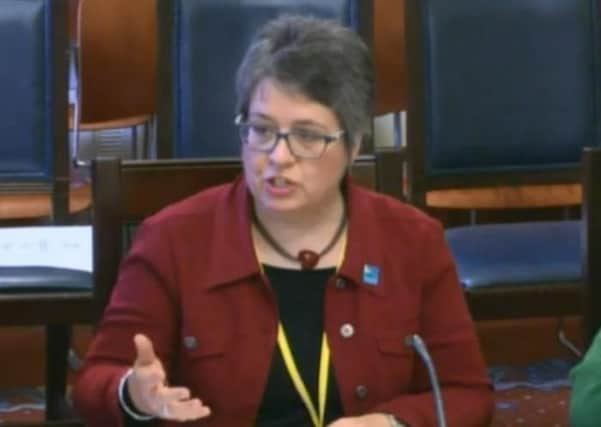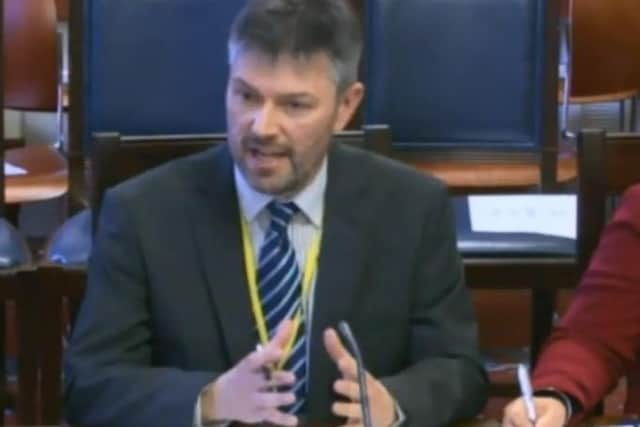Bird population, afforestation and hedgerows focus of committee evidence


Mr Craig McGuicken attended on behalf of NIEL, Ms Victoria Magreehan represented NT, while both Ms Joanne Sherwood and Ms Jane Clarke attended on behalf of RSPB NI.
“Given all the doom and gloom, I am encouraged that the bird population increased by 49% between 1994 and 2017, remarked Mr Irwin.
Advertisement
Advertisement
“That is a surprise to me, but it is good. We must be doing something right. We are not doing everything wrong, if that is the case.”


He went on to ask: “Am I right in saying that? What is the reason for the big increase in the bird population?”
Ms Sherwood replied: “Some of the generalist species have increased.”
Mr Irwin continued: “What do you think is the reason for that?”
Advertisement
Advertisement
Ms Sherwood remarked: “Looking at the overall health, you need to look at the abundance and the diversity. Just because one increases, it does not necessarily mean that the whole system is in good health.”
Mr Irwin further asked: “There has to be a reason for that increase?”
Ms Sherwood replied: “Yes. The conditions in the environment and the way in which the land has been managed probably favour some generalist species. However, for the specialist species and that broader range of species, it is really important to have a healthy and functioning ecosystem.”
Mr Irwin then turned his attention to butterflies. He asked: “You mentioned butterflies earlier. Is there any particular reason for the drastic decrease in the butterfly population?”
Advertisement
Advertisement
Ms Sherwood commented: “The same sort of reasons: the way in which we have managed our land and the availability of particular habitat.”
Mr Irwin asked: “Is that to do with sprays and things like that?”
Ms Sherwood answered: “Yes, it could well be. It could be to do with agricultural practices. It could be to do with other forms of pollution. It could be a whole range of factors.”
Mr Irwin remarked: “If there are flies in the house, we all spray them to kill them.”
Advertisement
Advertisement
Ms Sherwood remarked: “It is the same with some of the organisms that form soil as well. Soil formation is hugely important in having productive land for agriculture and everything. It is the same with pollination. There is a range of land management practices. You mentioned spraying, but there are others.”
Mr Irwin commented: “Every house in the country sprays to kills flies.”
At this moment Ms Claire Bailey remarked: “Not mine. I have a good swatter.”
Mr Irwin then turned the focus on his questions to afforestation in Northern Ireland.
Advertisement
Advertisement
He said: “You mentioned tree cover. I accept that it is low in Northern Ireland, but, historically, there has been low tree cover for hundreds of years. Am I not right about that?”
Ms Sherwood replied: “I do not have statistics in front of me going back hundreds of years, but, historically, Northern Ireland has been low.”
Mr Irwin commented: “Absolutely. It is not, therefore, something that we did yesterday or that man has done recently. To my knowledge, it is an historical situation in Northern Ireland.”
Ms Sherwood replied: “Deforestation and land drainage have been increasing.”
Advertisement
Advertisement
Mr Irwin asked: “I would have thought that the planting over the last few years probably would have made up for it. Do you understand? It would be interesting to see the historical situation.”
At this stage Mr Craig McGuicken took up answering Mr Irwin’s questions. He remarked: “I do not think that any of us know, but we can try to find out.”
Mr Irwin remarked: “It would be better to know before making decisions. We should know.”
Mr McGuicken replied: “We know that Northern Ireland has one of the lowest levels of cover in Europe.
Advertisement
Advertisement
Mr Irwin responded: “I accept that, but I am saying that it is historical. It did not happen yesterday, last year or 10 years ago.
Mr McGuicken said: “We agree with that.”
Ms Victoria Magreehan remarked: “What is important is that we understand the role of trees in the climate crisis that we face, the nature and biodiversity climate that we face and the services that trees and woodlands provide for human and environmental health.
“The woodland picture for Northern Ireland and the island of Ireland is not great. We want that to be addressed.
“Further to the point on planting, let us not forget how really important hedgerows are in the landscape.”
Mr Irwin then raised the issue of hedgerows.
Advertisement
Advertisement
He remarked: “There are a lot of hedgerows in Northern Ireland.”
Ms Magreehan answered: “Yes. A well-managed hedgerow is really important for wildlife, as it is for pollinators, whose importance you, quite rightly, raise.”
Mr Irwin added: “I thought that we had many more hedgerows than many areas in Scotland and England.”
Ms Magreehan remarked: “Yes. They are also an important part of our cultural landscape. Our farmers are proud of managing their hedgerows well.”